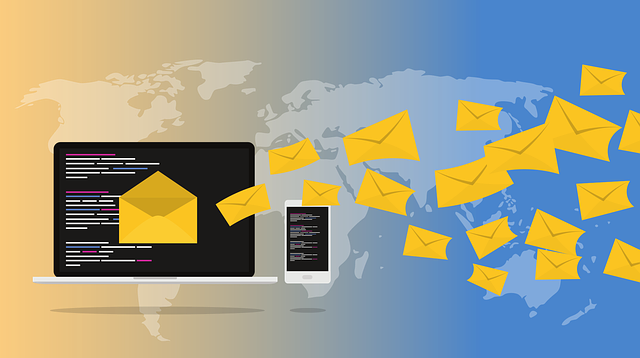AI assistants for marketing automation are transforming the industry by streamlining workflows, enhancing efficiency and personalization. They simplify tasks like data entry and email scheduling, allow for targeted content delivery, and provide deep customer behavior insights from data analysis. This technology revolutionizes campaign performance through precise strategy insights, boosted engagement, optimized lead generation, and improved overall operational efficiency.
An AI assistant is revolutionizing marketing automation workflows, transforming how businesses engage customers. This advanced technology goes beyond traditional automation by understanding natural language, learning from data, and adapting to individual user needs. By leveraging AI capabilities, marketers can streamline repetitive tasks, personalizing customer interactions at scale while gaining valuable insights for data-driven decisions. From optimizing campaigns to enhancing ROI, an AI assistant is a game-changer, offering efficient, effective solutions tailored to modern marketing demands.
- Understanding AI Assistant Capabilities in Marketing
- Streamlining Repetitive Tasks for Efficient Automation
- Personalizing Customer Engagement at Scale
- Data Analysis and Insights Generation
- Optimizing Campaigns for Better ROI
Understanding AI Assistant Capabilities in Marketing

In today’s digital era, marketing professionals are increasingly turning to AI assistants for marketing automation as a game-changer. These advanced tools are designed to revolutionize and streamline various aspects of marketing workflows, from content creation to customer engagement. By leveraging artificial intelligence, marketers can automate repetitive tasks, gain valuable insights from vast data, and personalize interactions at scale. An ai assistant for marketing automation can understand natural language queries, generate tailored content, segment audiences, and predict customer behavior, thereby enhancing efficiency and effectiveness across the board.
The capabilities of AI assistants extend beyond simple task automation to include advanced analytics and intelligent decision-making support. They can analyze customer journeys, optimize campaign performance, and provide real-time recommendations, ensuring that marketing strategies are data-driven and aligned with business goals. Moreover, integrating AI into sales and workflow processes enables marketers to focus on creative strategy while leaving the tedious work to these intelligent assistants, ultimately fostering a more dynamic and responsive marketing ecosystem.
Streamlining Repetitive Tasks for Efficient Automation

In the realm of marketing automation, one of the key benefits offered by AI assistants is the streamlining of repetitive and time-consuming tasks. These intelligent tools can handle a multitude of routine responsibilities, from data entry to email scheduling, thereby freeing up valuable time for marketing teams. By automating these tasks, businesses can ensure consistency and accuracy in their workflows while reducing human error.
For instance, an AI assistant can efficiently manage customer data across various platforms, facilitating personalized communication through targeted campaigns. Chatbots, powered by AI agents, can handle initial customer inquiries, providing instant support and gathering crucial information for further marketing strategies. This level of automation not only enhances overall efficiency but also enables marketers to focus on creative and strategic aspects, ultimately elevating the effectiveness of their campaigns.
Personalizing Customer Engagement at Scale

In today’s digital era, businesses are increasingly leveraging AI assistants for marketing automation to transform their customer engagement strategies. These intelligent tools can analyze vast datasets on consumer behavior and preferences, enabling personalized interactions at scale. By understanding individual customer needs, an AI assistant for marketing automation can deliver targeted content, product recommendations, and timely communications, fostering a sense of individualized attention that traditional automated systems struggle to match.
The integration of AI chatbots into marketing workflows optimizes the entire process, from lead generation to post-purchase support. They can handle routine inquiries, qualify leads, and provide 24/7 assistance, allowing human agents to focus on more complex tasks. This not only enhances customer satisfaction but also improves operational efficiency by streamlining repetitive tasks within the ai workflow, ultimately driving better business outcomes.
Data Analysis and Insights Generation

An AI assistant for marketing automation revolutionizes data analysis by processing vast volumes of customer interactions and market trends at lightning speed. These intelligent systems utilize advanced algorithms to uncover hidden patterns, providing marketers with actionable insights that were previously difficult to attain. By analyzing website traffic, social media engagement, and customer behavior across various touchpoints, the AI assistant offers a comprehensive view of the entire customer journey.
This level of data analysis enables marketers to make informed decisions about campaign strategies, product development, and personalized content creation. For instance, in e-commerce automation, an AI chatbot can analyze purchase history and browsing patterns to offer tailored product recommendations, enhancing the customer experience and driving sales. Similarly, chatbot marketing benefits from these insights, allowing for more effective lead generation and engagement through targeted conversations.
Optimizing Campaigns for Better ROI

An AI assistant for marketing automation can significantly enhance campaign performance by optimizing various aspects for improved ROI. These intelligent tools analyze vast amounts of customer data, providing insights that enable marketers to tailor their strategies precisely. By understanding buyer behavior and preferences, AI assistants can help create highly personalized content, ensuring each interaction resonates with the audience. This level of customization increases engagement and drives conversions.
Moreover, these assistants automate repetitive tasks, freeing up marketing teams to focus on creative and strategic work. They can optimize email campaigns, set up dynamic content delivery, and even predict customer behavior to anticipate their needs. For instance, an AI funnel builder can guide prospects through a sales journey, offering relevant products or services based on their past interactions and preferences, ultimately leading to increased sales and higher customer satisfaction. The use of a sales chatbot powered by AI further streamlines lead generation and qualification processes.
An AI assistant for marketing automation is no longer a futuristic concept but a reality that’s transforming how businesses approach their strategies. By leveraging these advanced tools, companies can streamline repetitive tasks, personalize customer interactions on a massive scale, and gain valuable insights to optimize campaigns. The result? Enhanced efficiency, improved ROI, and a competitive edge in today’s dynamic market. Embrace the power of AI automation to revolutionize your marketing workflows.
